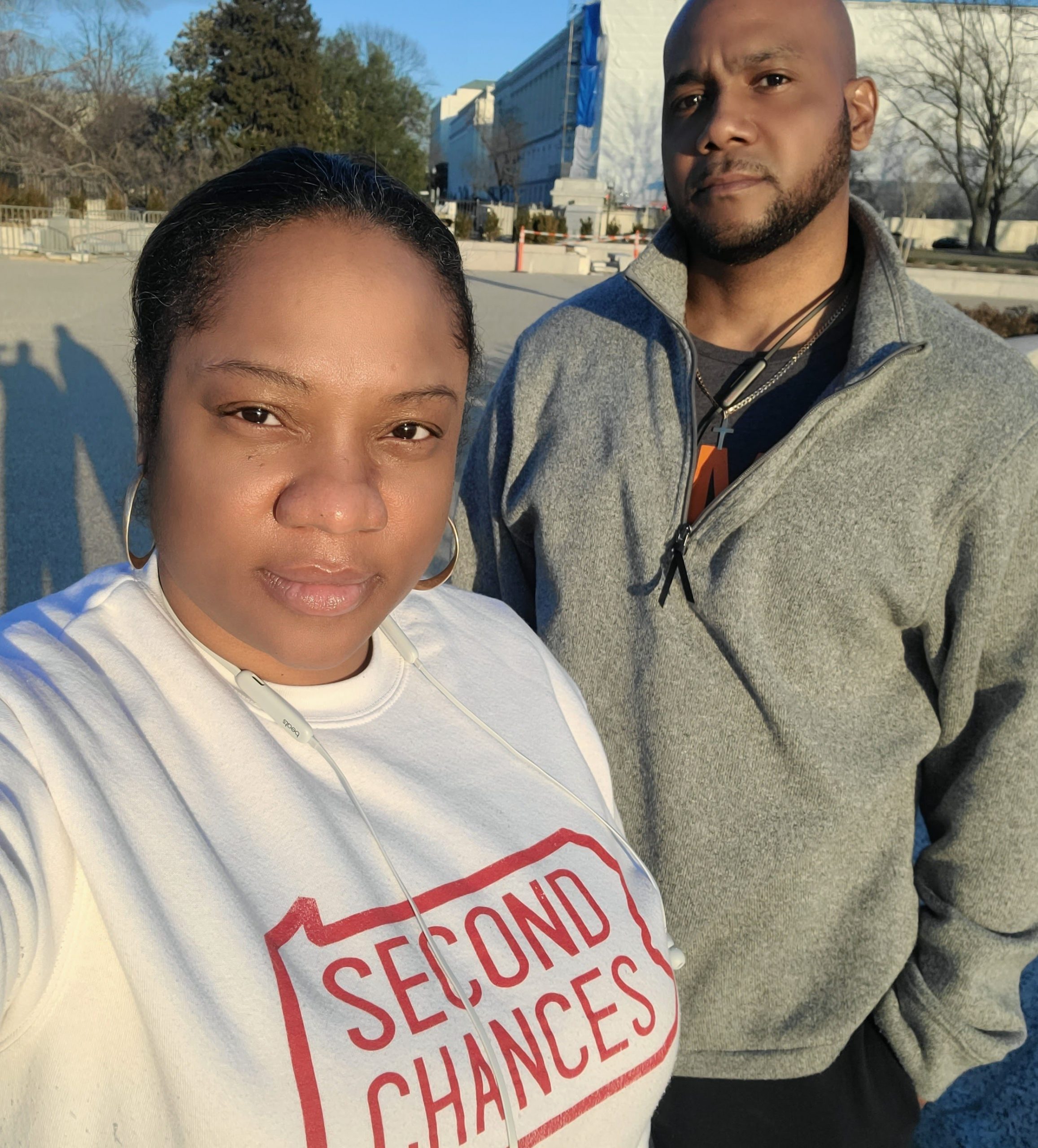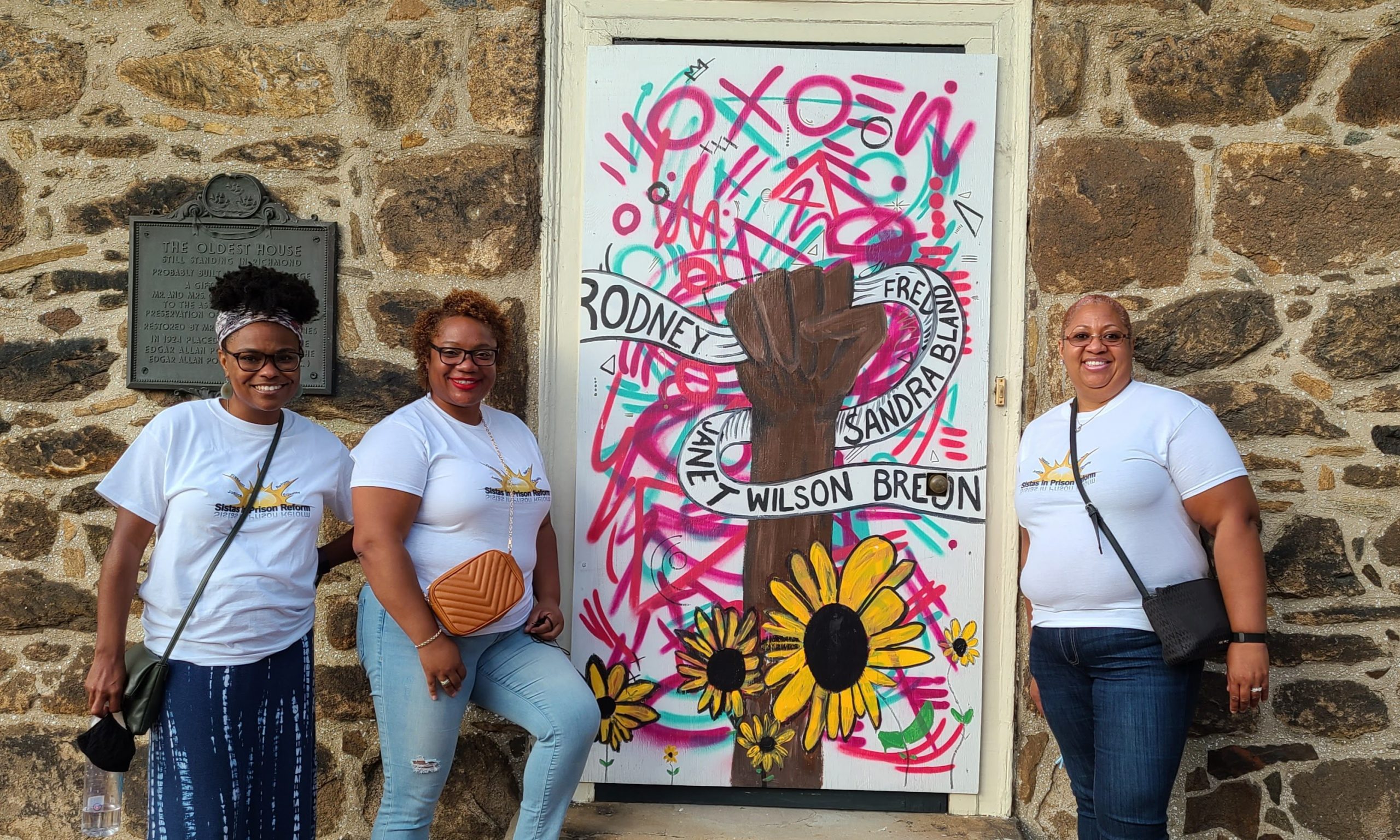My best friend Sincere was sentenced to 45 years in the Virginia Department of Correction at the age of 19, after accepting an Alford plea to charges of arson, first degree murder, and use of a firearm in the commission of a felony. He took this deal because he was facing a capital murder charge and feared he would be given the death penalty if he was convicted. Like many others in his shoes, a number of factors contributed to his decision: He is Black of Hispanic descent, the charges arose in the South, and the victim was a white male. He did not stand a chance in Virginia, and his lawyers did not inspire confidence; they seemed unwilling to fight for him. Sincere went on to serve 24 years before receiving a pardon from former Governor Ralph Northam in January.
Had it not been for this pardon, Sincere would still be sitting in a prison cell with no options for release. For one, because Virginia abolished parole in 1995. But also because the recent earned sentencing credit bill that passed during the General Assembly of 2020, giving hope to some but not all, only included for release people with nonviolent convictions, plus others with certain violent and nonviolent convictions. Sincere did not qualify under either category. Having no way out is a hard pill to swallow when you are 19 years old. The idea that the world has given up on you lingers. It is easy to think of suicide or engage in other forms of self-harm, including turning to drugs, alcohol, and other offenses while incarcerated. When you have 85 percent of time to complete, the light at the end of the tunnel is barely visible.
For Sincere, his light remained dim until we reconnected in 2019. We have been friends since 1995 — two teens who met on a local bus in Boston. For three years, we were inseparable — until he was extradited to Virginia in 1998, forced to face punishment for offenses the commonwealth wanted him to pay dearly for. Once he was convicted, we remained in contact for eight years through snail mail and collect calls. But life changed. And when we were both 26, we disconnected for a period of time that would turn out to be a decade. In 2016, we reconnected. And by 2019, we had a plan of action. I gave Sincere my word that I would bring him home. I knew two important facts: Sincere was not the 18-year-old boy he was in 1998, and he did not have 18 more years left in him to complete. He had done enough time, and I planned to show that freedom should be his.

Sincere is not an exception. He, like so many others who were and continue to be incarcerated, is an amazing person who needed an opportunity to share his experience and growth despite the obstacles stacked against him. Yet due to fearmongering, ignorance, personal agendas, and outright lies, so many people like him are not even considered in legislation aimed at reforming the criminal justice system. For many legislators, people simply do not change. Sincere changed. He has been home for six months and is thriving. He is everything many lawmakers said he would never be. Everyone should be as blessed as Sincere is.
The 2020 legislative session in Virginia saw the passage of a key piece of legislation regarding criminal justice reforms. As originally enacted, the earned sentence credits bill was set to release about 4,500 people after July 1. The bill allowed people convicted of certain violent and non-violent crimes to earn time off their sentences. To earn credit, one must cooperate in educational or vocational programs and employment. Yet in June, Republican House leader Delegate Robert Bell was able to convince Governor Glenn Youngkin to amend the law through the budget process to exclude people they deem dangerous and unworthy of release. This last-minute bait-and-switch will have a devastating effect on thousands of families.
Most of the people with these kinds of records were individuals convicted of robbery, which in Virginia, until recently, carried a minimum sentence of five years to life, regardless of the type of robbery. For example, I could rob a person for their purse and not harm them physically, but still get 25 years. Negotiations in 2020 in the General Assembly had already excluded people convicted of rape and murder. Yet during the budget amendment process last month, I sat in awe as Bell wildly misrepresented how many people would be released under the bill Governor Northam had signed into law in 2020. The Senate also failed to kill the amendment. This reversal is egregious and cruel because people’s time had already been calculated, release letters had been received, and families had planned for summer releases, only to have the rug pulled from under them and be told their loved ones’ homecomings are no longer happening.
Virginia lawmakers and many Virginians have an unfounded fear of incarcerated people that is not based on facts. Their fear often rests on the outdated “tough on crime” stench that remains — the lingering idea that if you release someone, they will automatically reoffend. The governor repeated this trope, commending Republican lawmakers “for ensuring communities across the Commonwealth are safe by removing violent criminals’ ability to get off early and re-offend,” which in his view made Virginia safer. “Today is a good day in Virginia!” he cheered on Twitter. Not once did he consider the family members, many of them children, who were waiting to be reunited with their loved ones who earned their releases through work, education, and staying infraction-free.
Fighting for Sincere motivated me to become actively involved in Virginia’s criminal justice reform community. I co-founded a group named Sistas in Prison Reform with two women who, like me, are fighting for loved ones convicted of violent crimes and given extremely lengthy sentences. One of our goals was to create a law where everyone would be eligible to have their sentence reviewed by a judge, potentially modified, and hopefully released after serving a certain amount of time. This concept is called second look. Many states are actively working to create their own version. Washington, D.C.’s version is the Incarceration Reduction Amendment Act. It is technically the first second look law and was initially passed in 2016 to help individuals convicted under the age of 18. In 2019, it was expanded to include individuals convicted under the age of 25. With several other advocacy groups such as Nolef Turns, Justice Forward Virginia, and The Humanization Project, we co-authored a second look bill, HB 906 and SB 378. Most of the laws that exist are focused on individuals under 18. In Virginia, we tried to push a bill that included everyone regardless of age.

To this day, it baffles me that we pick and choose whom we extend grace to, but usually leave out people who are incarcerated. To its credit, Virginia has gone on to change more policies, such as abolishing the death penalty, implementing juvenile parole, and legalizing marijuana. These are all necessary policy changes. But people convicted of violent crimes continue to be forgotten in legislation. Our second look bill gained a lot of momentum and was well received by both sides of the aisle. It passed in the Senate. Yet Bell, the chair of the Court of Justice in the House of Delegates, voted to table the bill for the remainder of the 2022 General Assembly session, essentially killing the bill. I think the worst part was listening to him, members of the Courts of Justice, and members of other voting committees make disparaging comments about the bill and incarcerated people that they never met and have no intention of ever meeting. Second look may have failed this 2022 session, but it is not dead. We have started working on it for the 2023 session and we hope to see it become law. It is needed in Virginia.
Second look is necessary because it allows a judge who is experienced and educated in this type of decision making to evaluate a person based on not just their prior crime history but who they have become. By contrast, in cases involving parole, a parole board made up of a group of individuals from various walks of life and often with no experience in presiding over difficult cases makes the final decision. They routinely lack the ability to be objective and they are unable to get beyond a person’s crime — even if that crime was 25 years earlier. Their reasonings for denial are random and almost always include the nature of the crime or the severity of the crime, which are two variables that will never change. Second look policies acknowledge that people grow, they age, and they do change. A judge has to take into account the age of the individual, scientific evidence such as brain development, law changes, a person’s education and work history, victim impact statement, and the person can speak for themselves — unlike a Virginia parole board that does not interview the people they report on.
Everyone should be on board with second look because it gives those incarcerated hope for release after a certain amount of time. Long sentences do not make the public safer. The recidivism rate for people in this age group and those convicted of violent crimes is low because research shows people age out of crime. Health care costs increase in prison as people age, imposing a greater burden on tax dollars that go towards incarceration. And morally, human beings are not meant to rot in cages. An 18-year-old should never be incarcerated for 30 years, let alone 45 years. Everyone is redeemable.
More from our decarceral brainstorm
Every week, Inquest aims to bring you insights from people thinking through and working for a world without mass incarceration.
Sign up for our newsletter for the latest.
Newsletter
Yet to many legislators who profess to be people of faith, redemption is off limits. It is disheartening listening to lawmakers produce reasons for why people convicted of violent crimes should not be released. Their reasons are not based in fact, but instead opinion. Most have never encountered someone with a violent conviction or even visited a prison. This is problematic because we look to the elected to make laws that serve the interest of their constituents. And incarcerated people are constituents, too. People incarcerated in jails and prisons have families, friends, and communities; they have humanity and dignity that, when uplifted, uplifts those who love and care about them.
Ten years ago, I worked in a house of correction as a physician assistant. I managed acute and chronic disease. I met many people who were serving sentences of two years or less, or were waiting to be sentenced to prison for an extended time period. I learned that we are all one bad decision away from the same position they were in, and I always knew not to judge. Even now, because of my advocacy, when I see that someone has committed a heinous crime on television, my first thought is not judgment, but instead I say to myself, “What supports did this individual not have that they needed and how if they had those supports could their life be different?”
Prison is not a warehouse for bodies where people go in and never come out. This is especially important for individuals who enter prison as youths. To not have policies that allow all individuals, regardless of the nature of their offenses, to have hope of a return to society is a disservice and a detriment to society. I am not safer because a 16-year-old is sentenced to 40 years. I am more concerned about the message we are sending the 16-, 17-, 18-, and 25-year-olds — that he or she is not worthy of life outside concrete walls, that he or she is only as good as their worst act, and that the possibility of redemption ends after entering prison.
I am not safer because a 16-year-old is sentenced to 40 years. I am more concerned about the message we are sending the 16-, 17-, 18-, and 25-year-olds — that he or she is not worthy of life outside concrete walls, that he or she is only as good as their worst act, and that the possibility of redemption ends after entering prison.
After seeing how lawmakers in Virginia do not want reform and engage in backdoor politics to make sure it doesn’t happen, a friend recently posed a question on Twitter: “What is the point of fighting?” I want to remind people of something an incarcerated friend told me: Reform of any kind is a marathon. It takes time before you see real change. In that time there are hills, valleys, and other obstacles, like injuries, that we all will and must endure before we see victory. I know change is going to happen. I believe it because Sincere is home after 24 years and he had no option but his pardon. I have no other choice but to be positive and keep fighting. Having a purpose makes one work hard to achieve a goal.
This is no different for many in prison. It would behoove a lawmaker to visit a prison, get to know people, and understand who they are, where they come from, and how they ended up incarcerated. Ignorance is bliss for some lawmakers. Refusing to acknowledge a problem does not make it go away. It is time to start acknowledging that life is about growth and development. Change is constant and it occurs even when incarcerated. Here is to making second look a reality in Virginia in 2023.
Header image: Derrick Brooks/Unsplash

